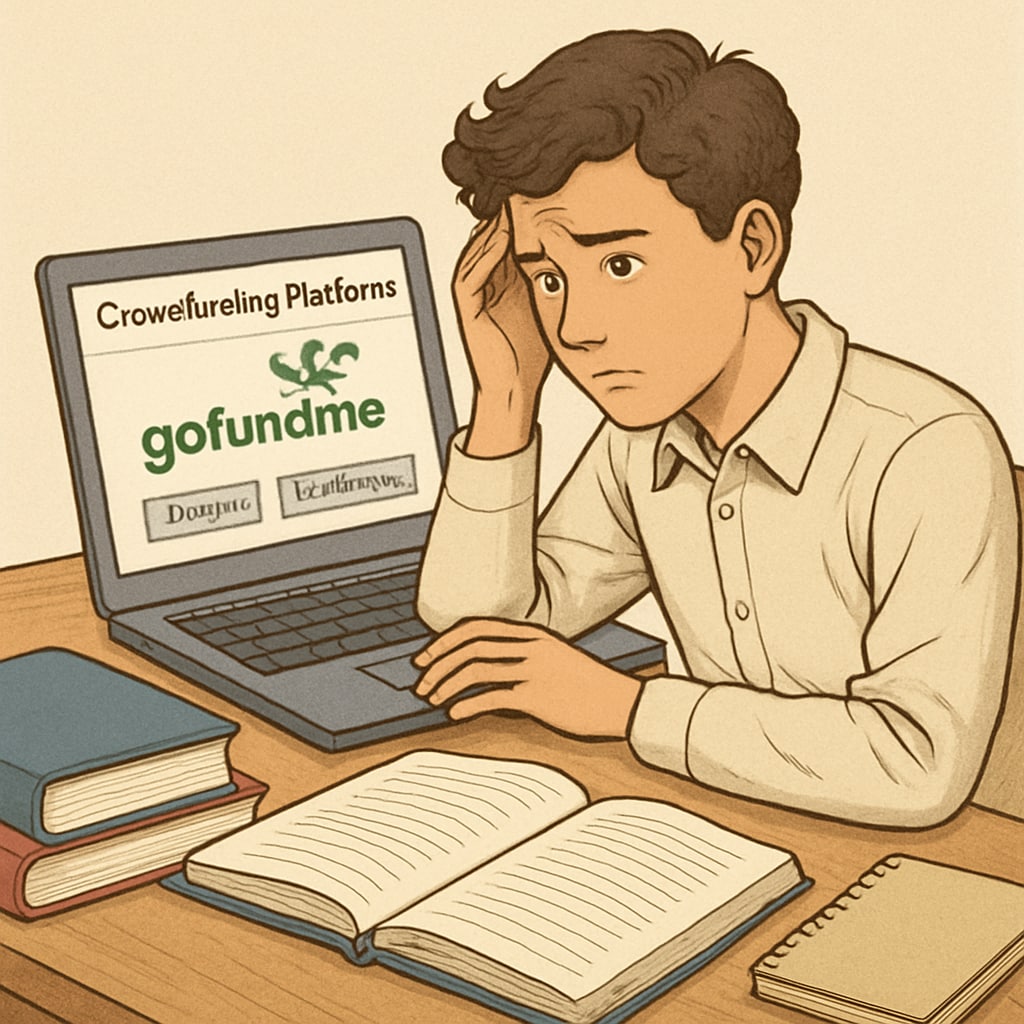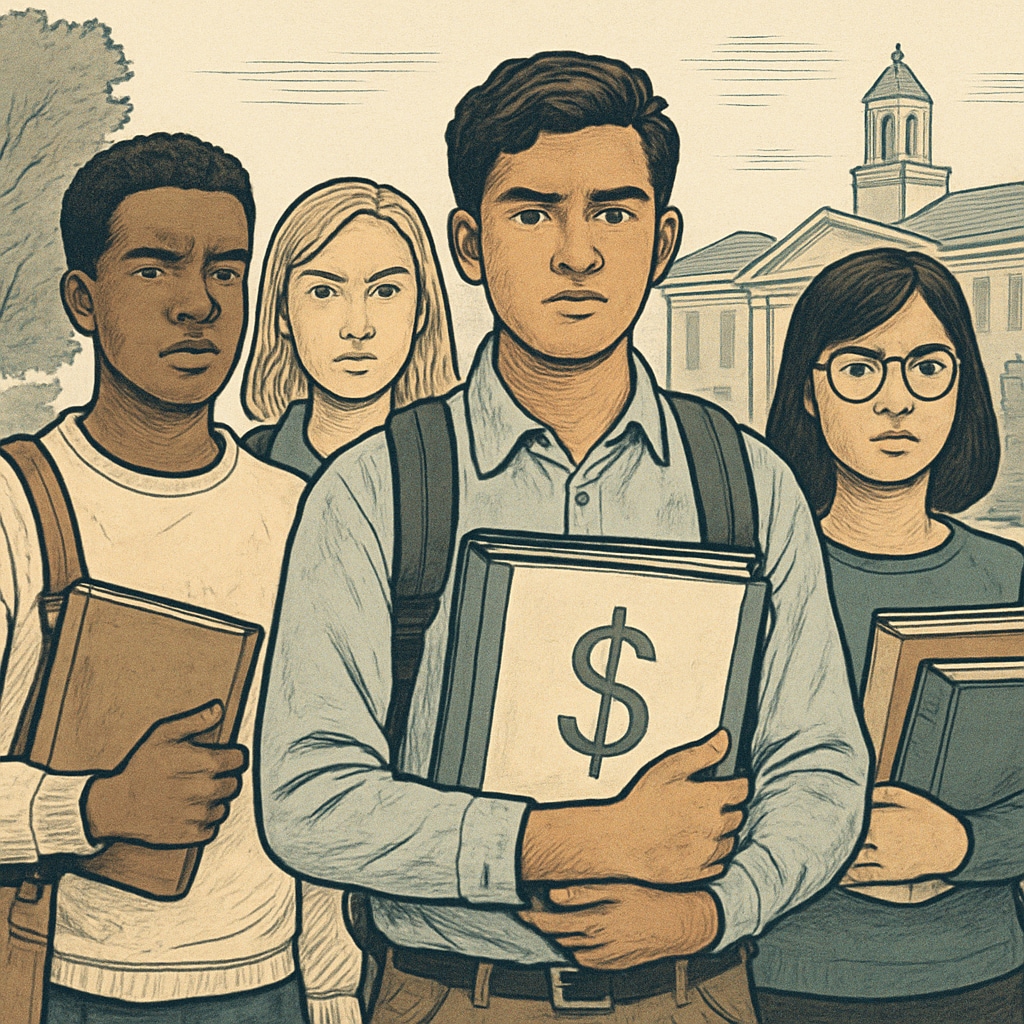When a university student faces financial struggles, the dream of completing their education often hangs by a thread. Recently, a remarkable case captured attention when a student turned to GoFundMe to cover tuition for their final semester and pursue a future in medical school. This story highlights systemic flaws in education funding and raises essential questions: How can we ensure talented students are not held back by financial barriers? And what role should society play in addressing these inequities?

How Financial Barriers Impact Students’ Futures
Financial struggles in higher education are not new, but their consequences are profound. Many students—especially from low-income backgrounds—often juggle part-time jobs, loans, and family responsibilities while pursuing their degrees. These challenges are even more critical for those in fields like medicine, where tuition costs can be exorbitant. For example, the average tuition for medical school in the U.S. ranges between $40,000 and $60,000 annually, according to the Association of American Medical Colleges.
In the case of the student seeking aid through GoFundMe, the decision to crowdfund was not just a cry for help—it was a reflection of systemic inadequacies. Traditional financial aid structures, scholarships, and grants often fail to address the full scope of a student’s needs, leaving them vulnerable to dropping out despite their potential. Such barriers disproportionately affect underrepresented students, further perpetuating cycles of inequality.
Crowdfunding: A Band-Aid Solution or a New Frontier?
Platforms like GoFundMe have emerged as lifelines for students facing financial crises. The student in this case used the platform to raise funds for their final semester, gaining widespread support from friends, family, and even strangers. While these campaigns often succeed in meeting immediate needs, they expose deeper problems in how education is funded.
On one hand, crowdfunding democratizes access to financial assistance, allowing individuals to rally support and share their stories. On the other hand, it places the burden of success on the student’s ability to market their financial struggles compellingly. For those without robust social networks or digital literacy, this can create additional inequities.
Moreover, relying on crowdfunding as a solution risks normalizing the idea that education is a privilege rather than a right. As a result, broader systemic reforms may be delayed or overlooked.

Building a More Equitable Education System
To address these challenges, reform must begin with the foundational structures of education funding. Here are several ways we can promote equity:
- Expand Need-Based Scholarships: Governments, universities, and private organizations should prioritize scholarships that target low-income students, particularly in high-cost fields like medicine.
- Increase Federal and State Education Budgets: Allocating more resources to public universities can reduce tuition and provide additional support for economically disadvantaged students.
- Promote Income-Share Agreements (ISAs): These agreements allow students to pay for education through a percentage of future earnings, reducing upfront financial burdens.
- Strengthen Early Intervention Programs: Addressing disparities in K-12 education can ensure students are better prepared and less likely to face financial struggles in higher education.
Additionally, fostering a culture of mentorship and community support can help students navigate financial challenges more effectively. For example, alumni networks can play a pivotal role in guiding students toward resources and opportunities.
Conclusion: Education as a Right, Not a Privilege
The story of the student who turned to GoFundMe to complete their education is both inspiring and troubling. While it underscores the resilience of individuals in the face of adversity, it also highlights the urgent need for systemic change. Education should never hinge on the generosity of strangers or the ability to craft a compelling crowdfunding campaign.
As a society, we must recognize that investing in education is not just about individual success—it is about collective progress. By addressing financial barriers and promoting equity, we can unlock the potential of countless students and create a brighter future for all.
Readability guidance: This article uses clear, concise language with short paragraphs and lists to ensure accessibility. Transition words are incorporated for smoother reading, and technical terms are explained where necessary. The focus remains on actionable solutions and systemic reform.


